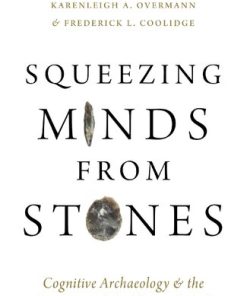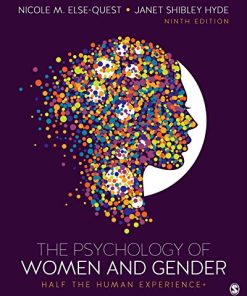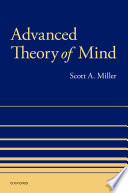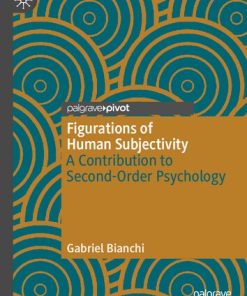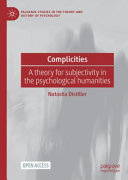The Explainability of Experience Realism and Subjectivity in Spinozas Theory of the Human Mind 1st edition by Ursula Renz 0190886412 9780190886417
$50.00 Original price was: $50.00.$25.00Current price is: $25.00.
The Explainability of Experience: Realism and Subjectivity in Spinoza’s Theory of the Human Mind 1st edition by Ursula Renz – Ebook PDF Instant Download/DeliveryISBN: 0190886412, 9780190886417
Full download The Explainability of Experience: Realism and Subjectivity in Spinoza’s Theory of the Human Mind 1st edition after payment.

Product details:
ISBN-10 : 0190886412
ISBN-13 : 9780190886417
Author : Ursula Renz
This book reconstructs Spinoza’s theory of the human mind against the backdrop of the twofold notion that subjective experience is explainable and that its successful explanation is of ethical relevance, because it makes us wiser, freer, and happier. Doing so, the book defends a realist rationalist interpretation of Spinoza’s approach which does not entail commitment to an ontological reduction of subjective experience to mere intelligibility. In contrast to a long-standing tradition of Hegelian reading of Spinoza’s Ethics, it thus defends the notion that the experience of finite subjects is fully real.
The Explainability of Experience: Realism and Subjectivity in Spinoza’s Theory of the Human Mind 1st Table of contents:
Part I: The Basic Framework: The Ethics’ Systematic Premises
1. Dissociating the Concept of Substance from the Concept of Subject
2. The Conception of Metaphysics in de Deo and Its Implications
a) The Claim behind de Deo: Metaphysics as a General Ontology
b) Substance Monism as a Commitment to Realism
c) On the Categorical Difference between Substance and Mode
d) The Meta-Theoretical Claim behind Spinoza’s Necessitarianism and Its Implications for the Theory of Causality
e) What It Means for Humans or Human Minds to Be Modes
3. The Concept of the Individual and Its Scope
a) When Is Something an Individual?
b) Physics and Metaphysics: Which Kinds of Entities Are Individuals?
c) Bodies Politic and Minds: Authentic and Inauthentic Individuals
Part II: The Ontology of the Mental: On the Relationship between Being and Thought
4. The Primacy of the Metaphysics over the Theory of the Mind
5. The Concept of Idea and Its Logic
a) Ideas as Concepts of the Mind: The Definition of “Idea” in Context
b) Representational Content and Epistemic Value: The Problem of the Content of Ideas in Spinoza
c) Spinoza’s Epistemic Determinism: The Rejection of the Spontaneity of Fictions
6. The Justification of a Realist Rationalism
a) Thought as an Attribute: On the Reality of the Mental
b) The Assumption of an idea Dei: Intelligibility as a Property of Being
c) Necessity, Infinity, Uniqueness: From the Notion of Intelligibility to the Concept of Knowledge
7. Body and Mind: What Spinoza’s Theory of Identity Seeks to Achieve
Part III: Theory of the Subject: The Concept of the Human Mind and Its Premises
8. The Problem of the Numerical Difference between Subjects
9. Finitude, or the Limited Knowability of Finite Things
a) Enduring Ideas of Enduring Things: Knowledge of the Existence of Singular Things and Its Empirical Origin
b) The Intelligibility of Events, or the Necessity of a View from Nowhere
10. The Definition of the Human Mind in Its Derivation
a) The Actual Being of the Mind: The Mind Is Knowledge and Not Bearer of Knowledge
b) The Contents of the Mind: Holism and Adequacy, or the Human Mind as Part of the Infinite Intellect
c) The Functioning of the Mind: The Epistemic Prerequisite of the Awareness of Affections
d) The Non-Transferability of the Mind: The Distinctive Objective Reality of Our Self-Knowledge
11. Panpsychism, or the Question “What Is the Subject of Experience?”
Interlude: The Function of Physics for Spinoza’s Philosophy
Part IV: Psychology and Epistemology: The Constitution, Experiential Quality, and Epistemic Value of Content
12. The Constitution of Mental Content in the imaginatio
a) Intension and Extension of Spinoza’s Concept of the Imagination and Its Implications
b) Synthesis without Spontaneity: On the Perception of the Affections of One’s Own Body and Its Implications
c) Transitions between Psychology and Semantics: Associations and Other Genetic Contingencies
13. Emotions, or How to Explain Qualities of Experience
a) On the Ontology of the Affects: What the Emotions Are, and Why We Have Them
b) Affects and Their Histories: The Genetic Reconstruction of the Secondary Affects
14. Epistemology: The Possibility of Producing Successful Explanations
a) Truth, Adequacy, and the Spectrum of Inadequate Knowledge: The Conceptual Basis of Spinoza’s Epistemic Perfectionism
b) The Possibility of Self-Reflection: The Conception of the idea ideae and Its Implications
c) The Functional Principle of the Common Notions and the Possibility of Acquiring a General Knowledge of the Human Being
d) The Completion of Spinoza’s Realist Rationalism, or the Concept of Intuitive Knowledge
e) What Explanations of Subjective Experiences Are, and What They Require
People also search for The Explainability of Experience: Realism and Subjectivity in Spinoza’s Theory of the Human Mind 1st:
experience new experiences
what is the ability experience
define explainability
an experience-expectant ability is one that
experience-expectant processes
Tags: The Explainability, Experience, Realism, Subjectivity, Spinozas Theory, the Human Mind, Ursula Renz
You may also like…
History - Archaeology
Squeezing Minds from Stones: Cognitive Archaeology and the Evolution of the Human Mind 1st Edition
Uncategorized
The Psychology of Women and Gender: Half the Human Experience + 9th Edition, (Ebook PDF)
Politics & Philosophy - General & Miscellaneous Philosophy
Advanced Theory of Mind 1st edition by Scott Miller 0197573193 9780197573198
History & Research
Politics & Philosophy - General & Miscellaneous Philosophy
Psychology - Cognitive Psychology
Biology and other natural sciences - History of Biology
Politics & Philosophy - Anthropology




